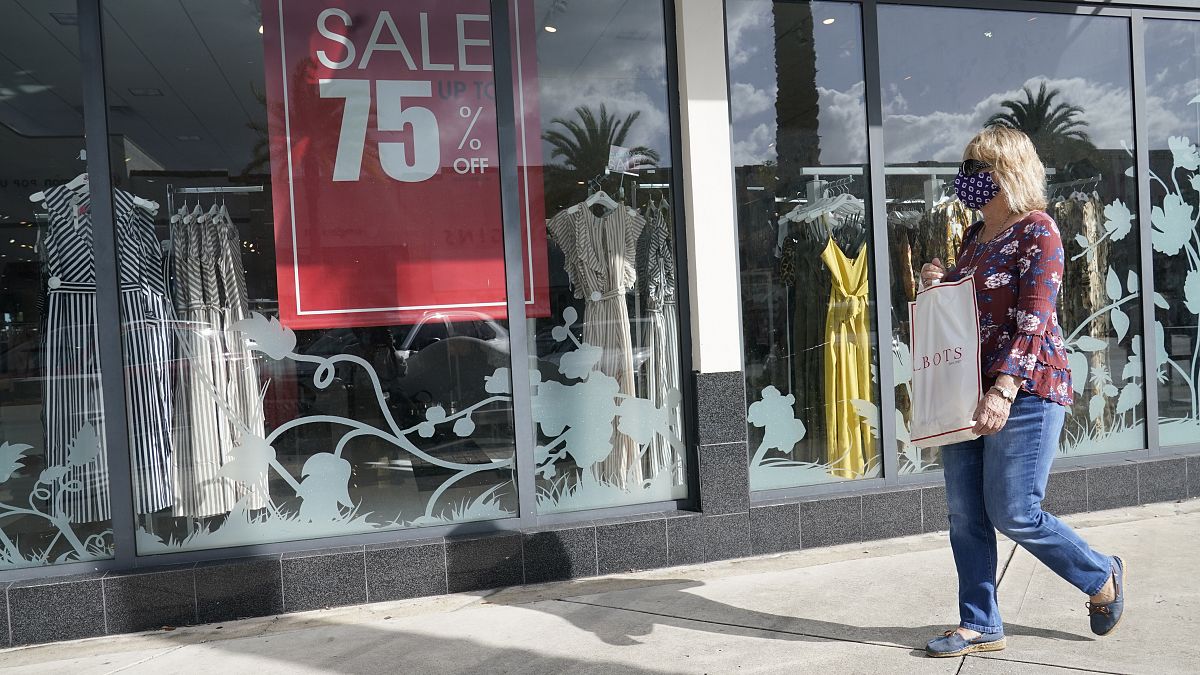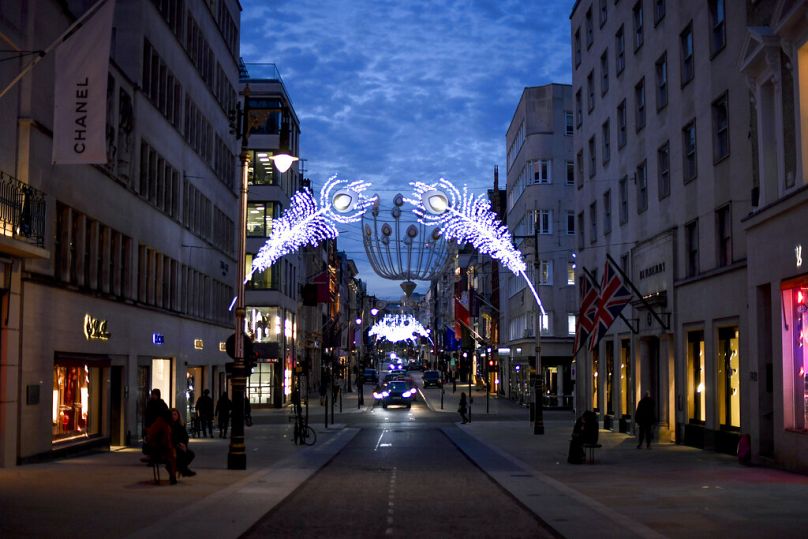As retail stores remain closed throughout Europe and many people are housebound, consumer trends have shifted this Black Friday.
Black Friday is usually the busiest shopping day of the year, drawing millions of people out to stores, eager to get started on their Christmas spending.
But high streets won't be flooded by the usual crowds this November as many European countries remain under tight restrictions.
Shoppers are doing more of their purchasing online this year than ever before, and stores are moving their doorbuster deals to the web, ramping up click and collect options as a last grasp at sales during the festive period.
"Black Friday is still critical," said Neil Saunders, managing director of GlobalData Retail. "No retailer wants it to be tarnished. It's still vital to get their consumers spending and get consumers into the holiday mood."
However, a survey by PriceWaterhouseCoopers (PWC) holds a less optimistic outlook, as it shows that interest in Black Friday deals were diminished in the UK when the second national lockdown was announced.
The same has been forecast across Europe, as consumer habits are driven by a 'need' rather than 'want' this year.
A 'need' rather than a 'want'
Working from home has changed our spending habits according to Norbert Herzog, expert at market research body Growth from Knowledge (GfK). With the usual festive gatherings and social occasions set to be restricted this year, Herzog has noticed that our purchasing habits are being driven by a "need" rather than a "want".
“More than any other Black Friday in memory, the product itself rather than the offer or price is the most important deciding factor for consumers. COVID-19 has shifted shoppers buying intentions from ‘want’ to ‘need’,” said Herzog.
“Of course, price is still important but as demand exceeds supply in several sectors, promotions may not be as attractive this Black Friday," he added.
But despite this shift in consumer motives, he said: "With many consumers either already in, or anticipating further lockdowns, this is going to be a busy year-end peak season all round, with focus on practical solutions and appliances that make life in the same four walls more bearable, whether that’s working, entertainment or domestic activities like cooking and cleaning.”
Here's what Europeans are spending their money on this Black Friday
GfK have identified three key trends driving sales this year:
Work from home: IT and office products are high up on people's wish lists this year due to working remotely. Each year, 60 million computing devices are sold in Europe. This market expanded by roughly 20 per cent in 2020, with growth expected to continue over the Black Friday weekend.
Health, well-being and hygiene: With many taking advantage of exercise outdoors during lockdown, smart watches, fitness trackers and healthy cooking appliances are all expected to perform well this Black Friday. 49 percent of global respondents said they actively look for products or services that help them live a healthier lifestyle.
Eating at home: Sales of kitchen appliances more than doubled after the first lockdown in Europe between May and July. According to GfK, more of us now cook for fun at home as a result of been stuck at home during the pandemic.
Death of the high street?
COVID-19 has accelerated the transition to digital lifestyles and forced those who would have ordinarily visited a physical store to purchase online. So, has the pandemic put another nail in the coffin of the high street?
Two-fifths of Europeans surveyed by GfK admitted to spending more time on the internet this year, and almost half (48 per cent) of UK online shoppers surveyed shopped exclusively online.
The most dramatic change is in the older generations who would have previously steered clear of the internet. The pandemic has facilitated a vital turning point to removing such barriers.
“The increase in online shopping seen during the lockdowns is by no means just temporary," said Herzog. "Crucially, the higher share of sales facilitated in online shops has continued beyond the reopening of retail stores after government-imposed lockdowns.
"This peak season, manufacturers, retailers and brands will need to differentiate particularly their online experience, to meet consumers’ needs for instant gratification and simplification, and to provide the best prices and promotions to tackle fierce competition.”


